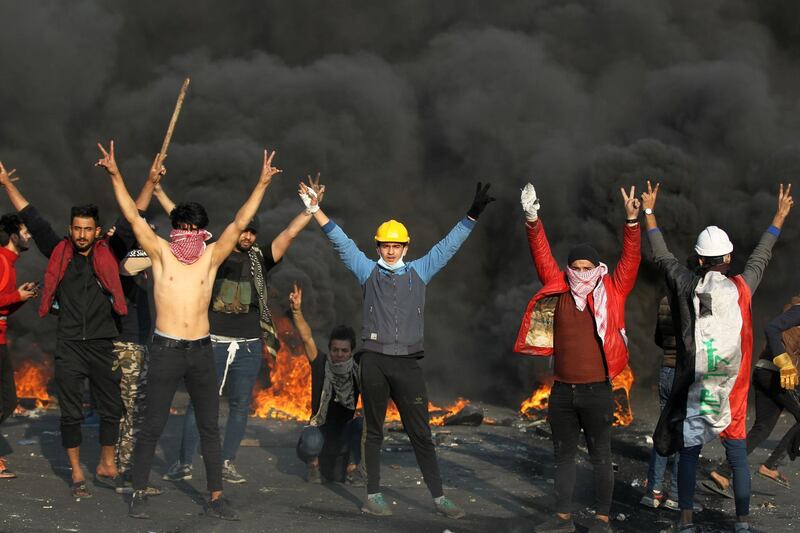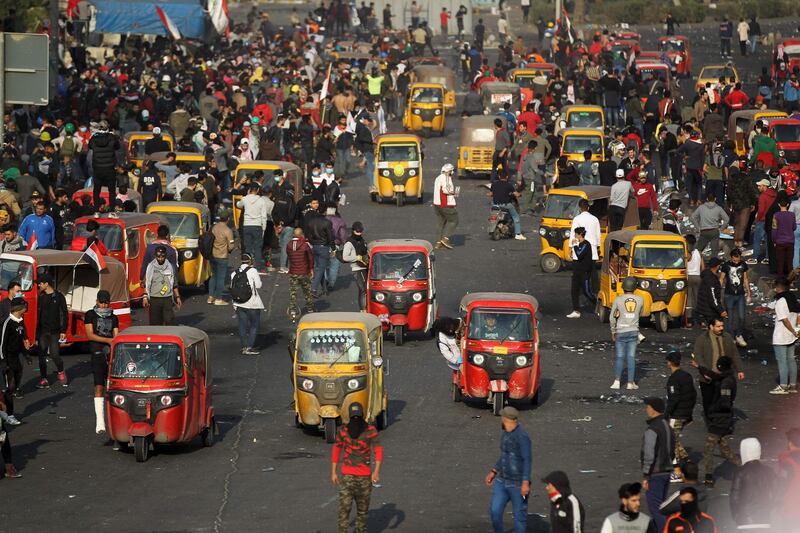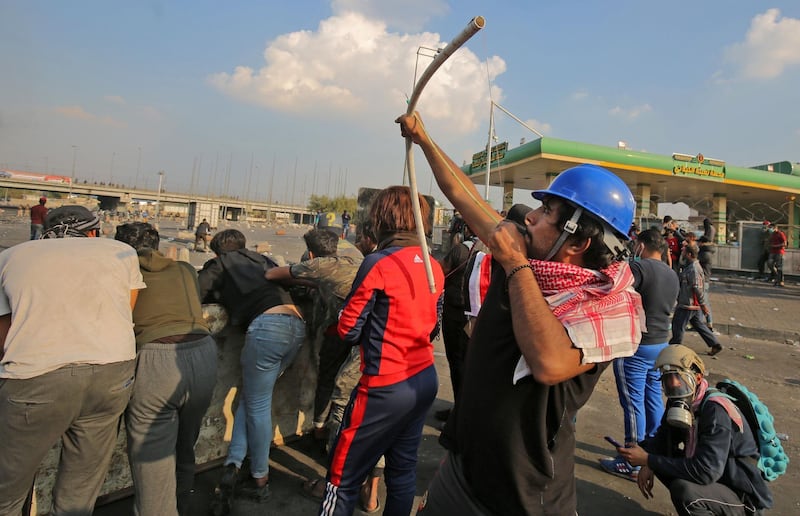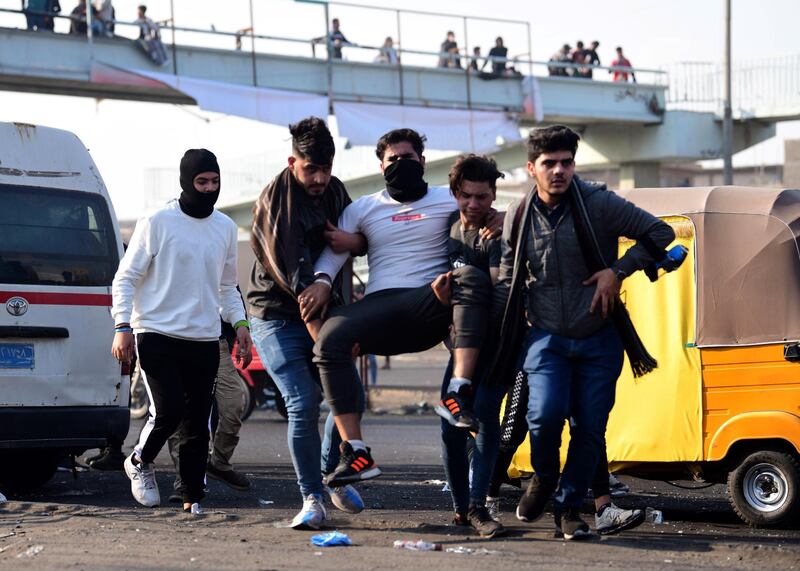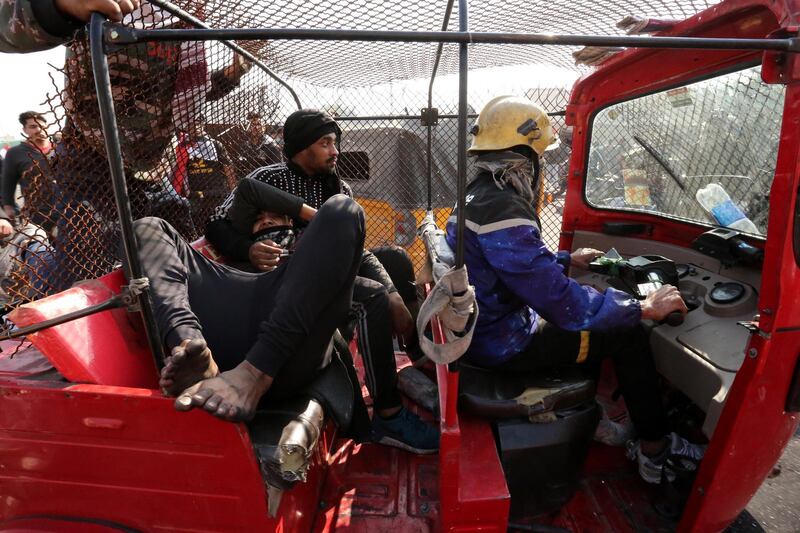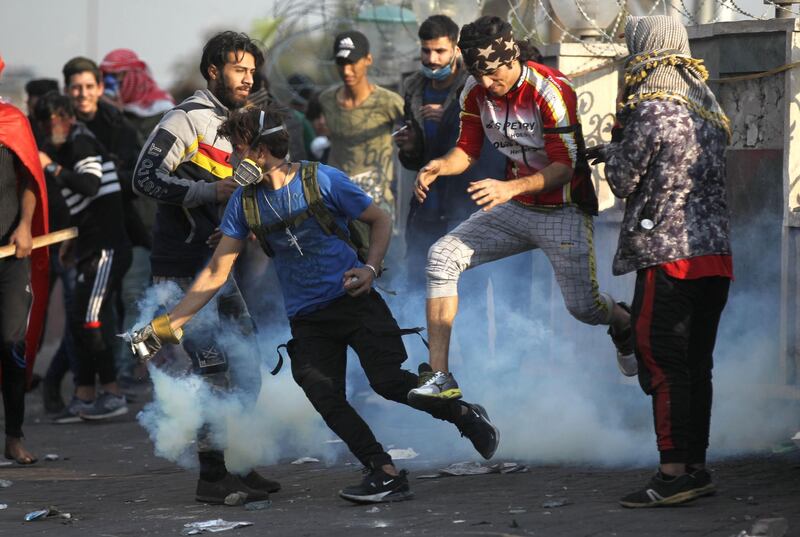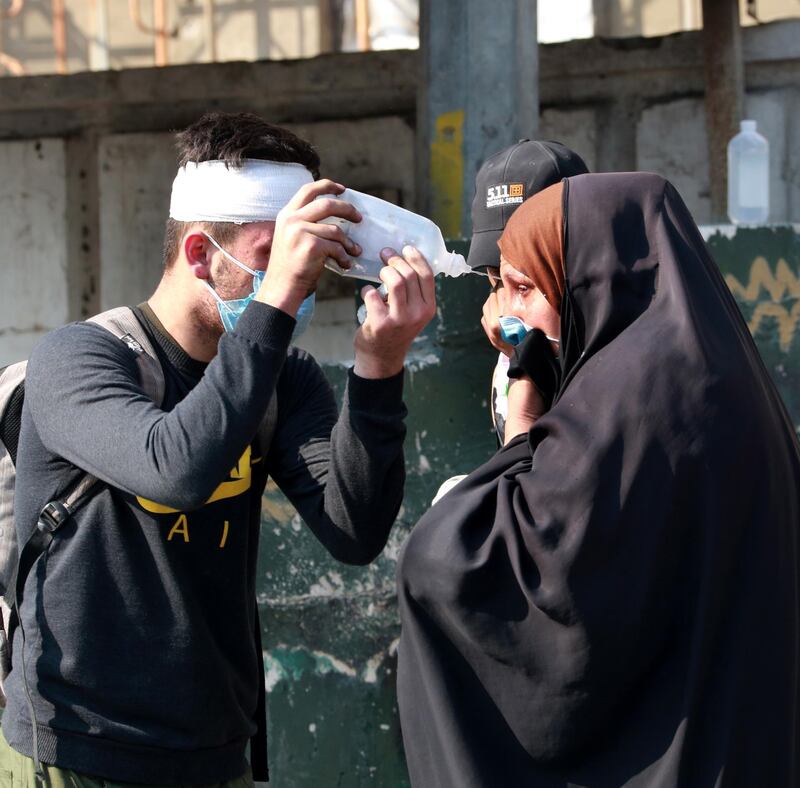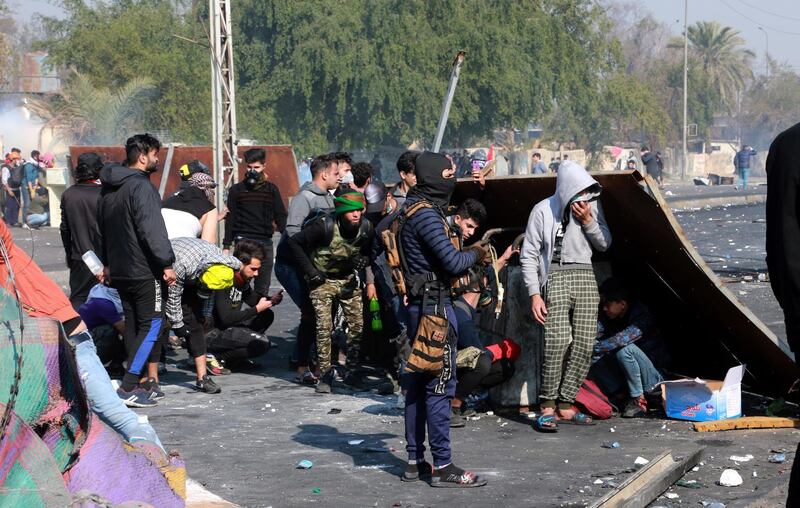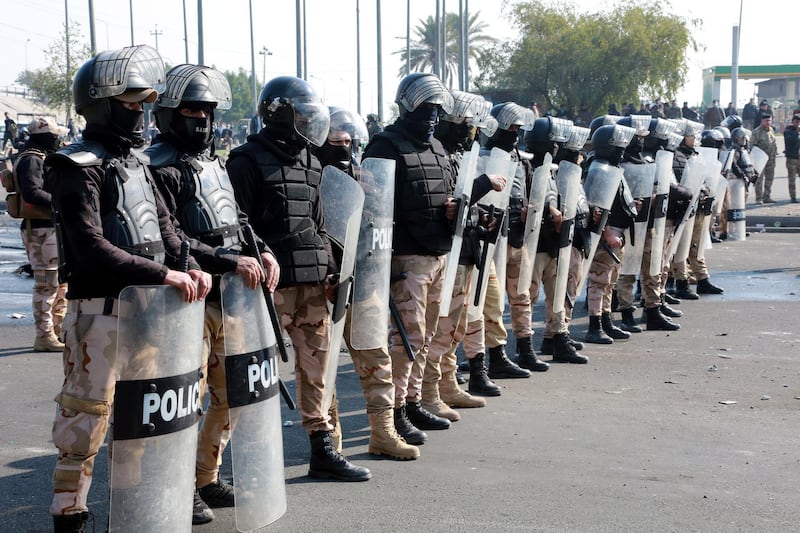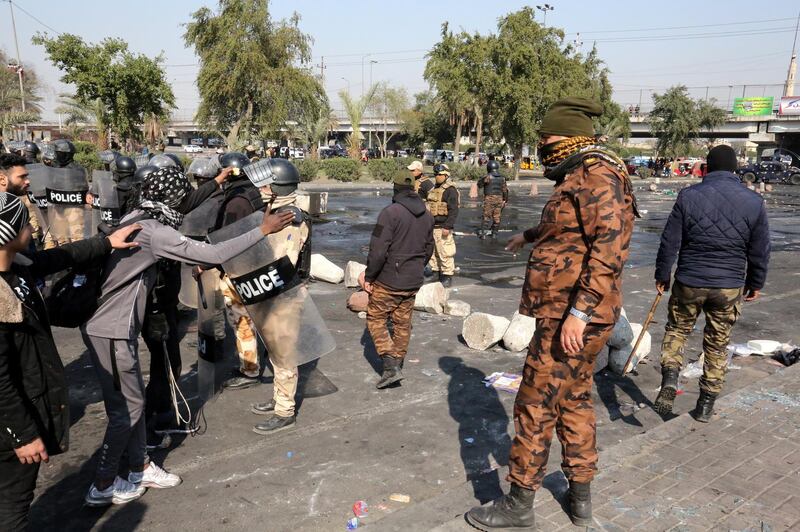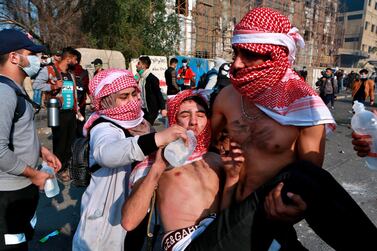Baghdad’s Mohammed Al Qassem highway rises over Palestine Street barely a kilometre east of Tahrir Square.
The monstrous concrete overpass, one of the busiest roads in the Iraqi capital, was virtually devoid of traffic on Monday, except for the tuk-tuks that have become a permanent fixture of protests around the country for the past three months.
In the nearby streets, young Iraqis danced and swigged on cans of juice. Others huddled around fires on the highway and below it, clapping and singing, “You are our homeland and we want to see you number one again”.
Others goaded security forces who stood about 100 metres away, tossing glass bottles filled with kerosene, but with little accuracy.
One shirtless man ran towards the troops shouting “Lil watani”, which means “for my homeland” in Arabic.
“We want to liberate ourselves from the corrupt government; they’ve ruled us for 16 years with no achievements,” said Ali Abbas, 27. “This is Iraq’s best ever generation because it is the only one fighting for the future, not the present.”
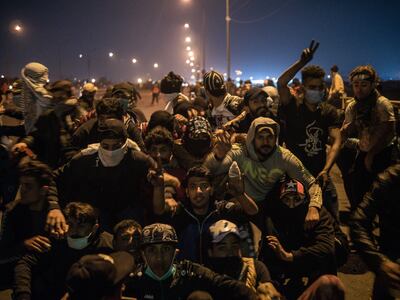
A deadline set by demonstrators in the southern city of Nasiriya last week, calling for political reforms that include a new electoral law and the naming of a new prime minister, expired at midnight on Sunday.
In Tahrir Square, a countdown clock was erected and protesters pledged to paralyse the country, closing main roads and blocking junctions.
The Mohammed Al Qassem motorway was their target.
Demonstrators successfully blocked the road on other nights, using chunks of scrap metal and overturned rubbish bins to create makeshift barricades.
But then they were eventually forced back by plumes of tear gas, and occasional gunfire from security forces.
The festive spirit of people power and community born in Tahrir continued on Monday. Protesters brought more scrap metal, shoring up the defences.
But shortly after 9pm, the party was interrupted – at least temporarily. A group of young men begged a news photographer to take their picture. As the camera’s shutter clicked, so did a trigger.
The scene instantly turned into one of terror as the crowd ran blindly in a desperate bid to get out of the line of fire. Seven or eight men crouched behind an abandoned tuk-tuk.
Rounds whistled above heads and one sparked as it ricocheted off the road.
Hundreds of young men poured down the motorway’s two slip roads to take cover under the bridge.
Within 30 seconds, it was over. A man put his arm around a friend, chuckling, as if to say, “Of course I wasn’t scared, were you?”
But the few moments of tranquillity were interrupted by screams for an ambulance. A man was carried down the slip road by a crowd and put in a tuk-tuk. He had been hit.
The tuk-tuk sped off, its buzzing horn fading as it hurtled towards an unknown hospital.
That security forces had already opened fire on those on the highway at least twice earlier in the day did not seem to bother protesters.
There is bravery among many that can only come from desperation. They believe they have nothing to lose.
At the end of that messy day, at least eight people had been killed across the country, three of them on the Mohammed Al Qassem motorway bridge, the Iraqi Red Crescent said.
Even so, the bridge remained a battleground at sunrise on Tuesday.
One of those killed was Yusuf Sattar, a photographer and volunteer medic. The Iraqi Red Crescent said he was shot in the head.
Videos on social media showed another protester shot in the chest in the city of Karbala. Local activists told The National he died on the way to hospital.
Iraqi authorities claimed that several policemen were wounded after being pelted with rocks by protesters.
Although demonstrators pledged to intensify their protests until their demands are met, they are all too aware of the challenges they face.
Shiite cleric Moqtada Al Sadr has called for a million-person march on Friday, but many in the Tahrir Square said he was trying to hijack the revolution they had sacrificed much for.
“They won't be welcome here,” Ahmed said.
